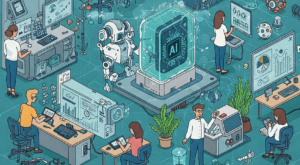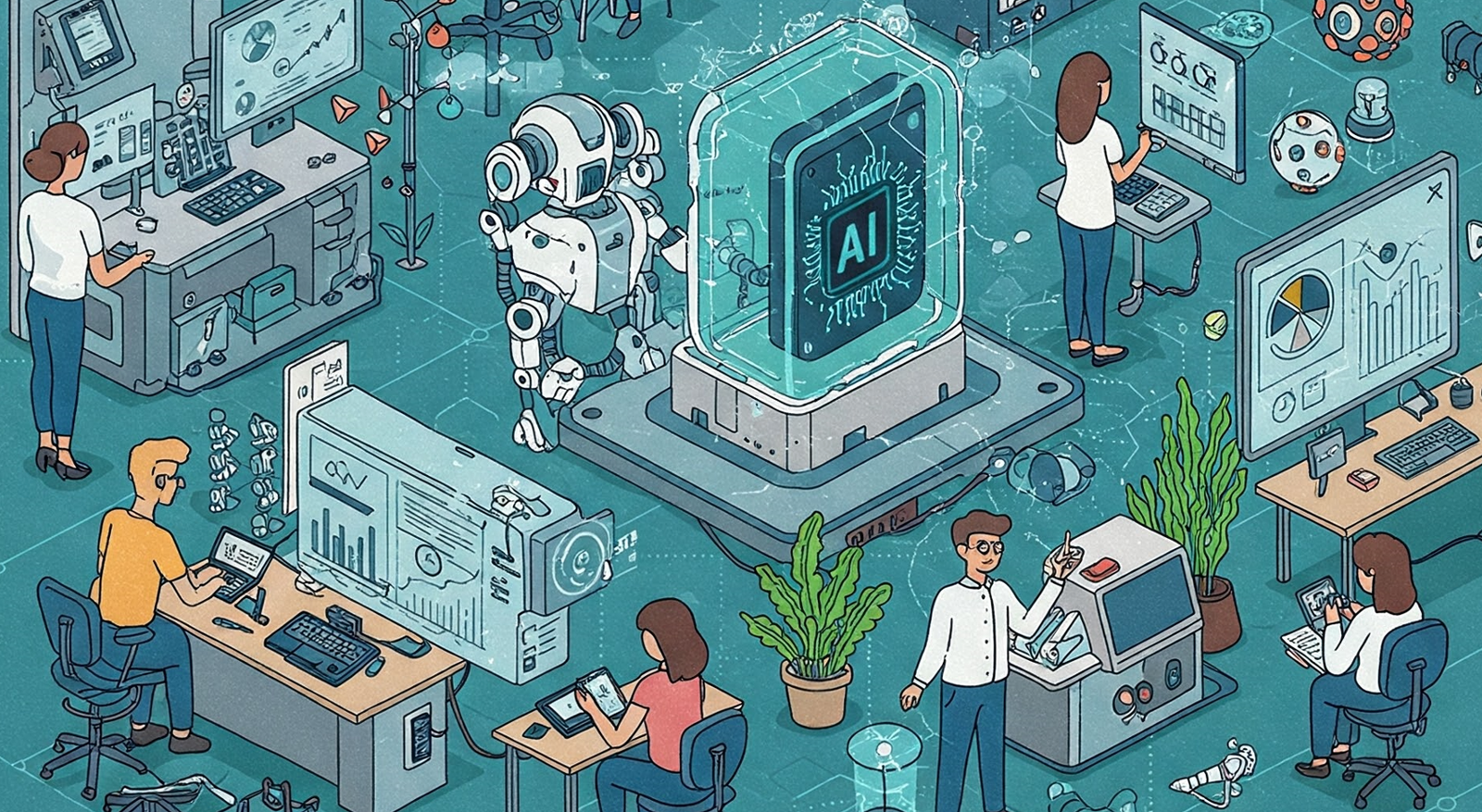
The Future of Work: How AI is Reshaping Jobs and Careers
by Lokesh Patil | Industry Expert

Artificial Intelligence (AI) is fundamentally reshaping the future of work, bringing profound changes to employment, career opportunities, and the skills required in the modern workplace. While automation and AI-driven technologies are driving efficiencies, they are also displacing certain job roles, creating both challenges and opportunities. This article explores the impact of AI on jobs, the rise of automation, and how individuals and organizations can adapt to this transformative landscape through reskilling and embracing new opportunities.
The Impact of AI on Employment
AI has disrupted traditional employment models by automating repetitive and manual tasks. Industries such as manufacturing, retail, and customer service are experiencing significant transformations as AI-powered systems replace routine jobs. For example, warehouse robots and automated checkout systems have streamlined operations, reducing the need for human intervention in certain roles.
However, AI is also creating new categories of jobs. Fields such as AI development, data science, machine learning engineering, and AI ethics consulting are thriving. According to the World Economic Forum, AI is expected to create 97 million new jobs globally by 2025, offsetting the jobs it displaces.
The Rise of Automation
Automation, powered by AI, has revolutionized how businesses operate. From robotic process automation (RPA) handling back-office tasks to self-driving vehicles in logistics, automation is improving efficiency and reducing costs. For instance, companies like Amazon have adopted AI-driven robots to optimize inventory management and accelerate delivery processes.
Despite its benefits, automation poses challenges for workers whose roles are at risk of becoming obsolete. Jobs involving repetitive tasks, such as data entry and basic manufacturing, are particularly vulnerable. However, this shift is also opening doors for more strategic and creative roles, where human skills like critical thinking and emotional intelligence are indispensable.
Reskilling: The Key to Adaptation
As AI continues to reshape the workforce, reskilling has become a critical strategy for workers to remain relevant. Governments, educational institutions, and organizations are investing heavily in upskilling programs to prepare the workforce for AI-driven industries. Online platforms like Coursera and Udemy offer courses in AI, data analytics, programming, and other in-demand skills.
Companies are also prioritizing reskilling initiatives. For example, AT&T’s Workforce 2020 program aims to train employees in emerging technologies, ensuring they stay competitive in a rapidly changing job market. Workers who embrace lifelong learning and adaptability are more likely to thrive in the evolving landscape.
New Job Opportunities Created by AI
AI technologies are not just replacing jobs; they are creating entirely new roles and industries. Positions such as AI trainers, machine learning specialists, AI ethicists, and data annotators are in high demand. Additionally, fields like virtual reality (VR), augmented reality (AR), and AI-powered healthcare are generating innovative career paths.
For instance, AI is enabling the development of personalized medicine, leading to opportunities in biotech and health tech. Similarly, the rise of smart cities is creating jobs in urban planning, environmental monitoring, and AI-driven infrastructure management.
Conclusion
The future of work is being redefined by AI, presenting both challenges and opportunities. While automation may displace certain roles, it also paves the way for innovation and the creation of new, high-value jobs. By embracing reskilling and adapting to technological advancements, workers can secure their place in this evolving landscape. Organizations and governments must collaborate to ensure a smooth transition, fostering a workforce equipped to harness the full potential of AI.
Facebook
Twitter
LinkedIn
WhatsApp
Telegram
Email

Related Articles

Subscribe to Newsletter
For latest tech updates, news, trends and opportunities.

